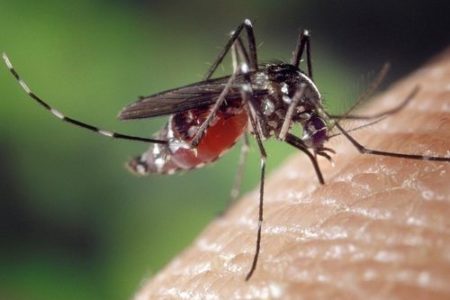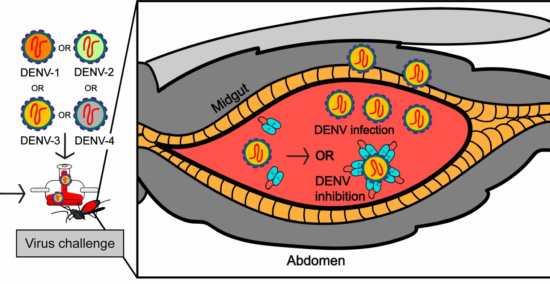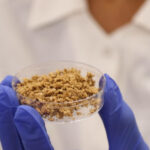
January 19, 2020 – For many the idea of modifying the genetics of anything is anathema. Genetically modified organisms (GMOs) are seen as one step too far in human engineering of plants and animals, going beyond selective breeding of plants and animals. But GMOs are increasingly offering us opportunities to apply the technology to fighting diseases.
In this case, Dengue, a disease spread by mosquitoes that causes fever, rash, extreme pain, and even death, is being targeted by researchers at UC San Diego and the Australian Animal Health Laboratory in Geelong, Australia, who are modifying mosquitoes.
Dengue is spread through mosquito bites, so what if they can be modified to resist the viruses responsible for the disease? Such a strategy would mean Dengue would no longer be transmitted by the insect and that would effectively impede the disease from spreading.
What is Dengue?
It is a mosquito-spread viral disease that is transmitted by female Aedes Aegypti and Aedes Albopictus mosquitoes. The viruses involved are of four types from the Flaviviridae family. A person who is infected by one of the viruses does not acquire immunity to the other three making them still susceptible to the disease. The mosquito hosts are the same as those that spread Chikungunya, Yellow Fever and Zika. Dengue, like other mosquito-borne diseases, predominantly inhabits the tropics although it has been migrating poleward as the Earth’s atmosphere warms.
Those infected by Dengue can be asymptomatic (showing no signs or symptoms), but the majority report severe flu-like symptoms. Severe cases include symptoms of internal bleeding, organ failure, and sometimes death. The Dengue found in much of South Asia and Central and South America is more often the severe version and has become a leading cause of hospitalization and death among children and adults in these regions of the world.
Dengue has expanded its range not just because the mosquito habitat is being expanded by climate change, but also because of travel with those infected taking the disease to new locales. As a result the incidence of Dengue is growing even though the disease is under-reported because of those who have it and are asymptomatic, and because it can be confused with influenza. But World Health Organization statistics estimate that 390 million get infected with Dengue annually with 96 million developing mild to severe symptoms. And because the mosquito habitat is widespread and growing, 3.9 billion humans are today at risk of infection.
Dengue is spreading fast. Before 1970, only 9 countries reported outbreaks of Dengue. Today the disease can be found in more than 100 countries with North America and Europe the latest parts of the world to report severe cases. Of the half-million annually who experience the most severe version of Dengue, 2.5% suffer mortality. Greater recognition of Dengue symptoms during early onset is seeing that percentage being to decline.
Controlling Dengue by Making Mosquitoes Unacceptable Hosts to the Virus
In an article published on January 16, 2020, entitled “Broad dengue neutralization in mosquitoes expressing an engineered antibody,” the authors describe their work to genetically modify mosquitoes to resist all four variants of the Dengue virus. They modified the insects by introducing an antibody that activates when the mosquito bites and ingests blood from a human or another animal host. The antibody blocks the virus from replicating effectively causing it to die. The researchers note that Dengue is only one of the diseases they intend to address using this method of genetic modification.

This is, states the authors, “the first example of an engineered transgene capable of rendering Aedes Aegypti mosquitoes 100% refractory to all four serotypes of Dengue.” They contemplate pairing their discovery with a gene drive to spread it through an entire disease-transmitting mosquito population. They believe the transgene approach should allow for similar GMO strategies om reducing the incidence and threat of other mosquito-borne diseases including Zika, Yellow Fever, and Chikungunya.















